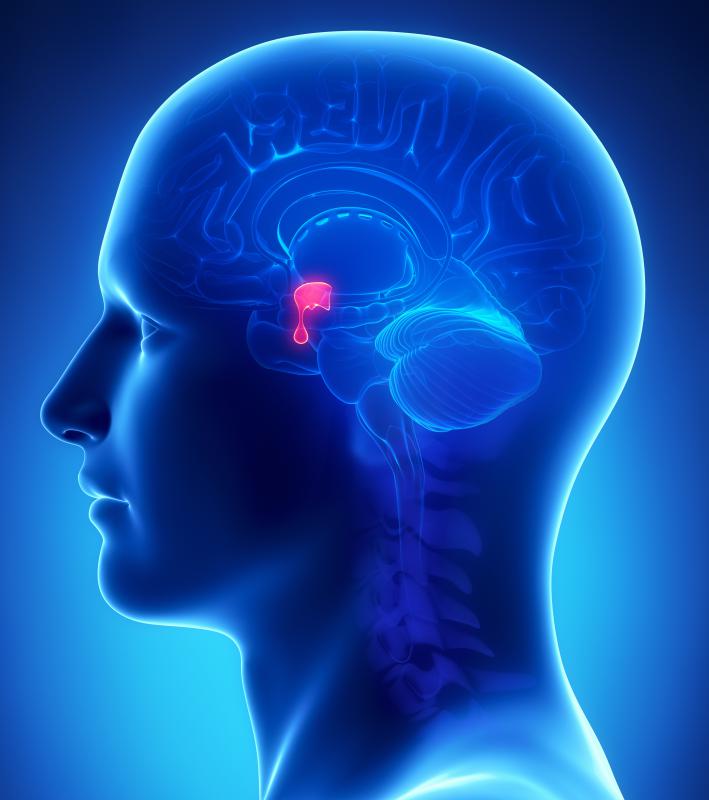At TheHealthBoard, we're committed to delivering accurate, trustworthy information. Our expert-authored content is rigorously fact-checked and sourced from credible authorities. Discover how we uphold the highest standards in providing you with reliable knowledge.
What Is the Connection between the Pituitary Gland and Thyroid?
The basic connection between the pituitary gland and thyroid gland lies in the pituitary's ability to stimulate the thyroid to produce the correct amount of thyroid hormone. This hormone regulates the body's metabolism, which controls the amount of food broken down and utilized as energy or stored for later use. Without the pituitary gland's ability to produce thyroid stimulating hormone (TSH), the thyroid's normal actions could result in an unbalanced use of energy within the body. Symptoms of a deficiency in both thyroid gland and pituitary function include weight gain or loss and energy troubles, as both glands typically control the body's energy stores.
The pituitary gland and thyroid gland are located in different parts of the body, with the pituitary gland located in the brain and having direct control over the actions of the thyroid. This gland secretes a hormone called TSH, which travels through the bloodstream and has direct influence over thyroid function. In humans and many animals, the thyroid gland lies in the base of the throat, and is responsible for the breakdown of food and the utilization of that food for energy. It regulates the energy that needs to be used immediately as well as the energy stored for later energy use as fat.

In a sense, the pituitary gland and thyroid work together to regulate the body's metabolic rate and processes. When the pituitary gland does not produce enough TSH, the thyroid can often cause an imbalance in the body's use of energy. Metabolic processes inside cells and other parts of the body do not function normally, and can result in a number of metabolic disorders and syndromes. Blood sugar is one example, and without the appropriate amount of thyroid hormone, blood sugar can become unstable in many individuals.

There is a connection between those suffering from diabetes, and other metabolic disorders, and the prevalence of pituitary gland and thyroid gland disorders. More often than not, individuals who suffer from a thyroid disease suffer from hypothyroidism, which is associated with uncontrolled weight gain and high blood sugar levels. Some individuals who suffer from pituitary and thyroid gland disorders can also suffer from hyperthyroidism, which is associated with uncontrolled weight loss and nervousness. Certain medications can be useful to help restore the body into its equilibrium by adjusting the amounts of TSH secreted by the pituitary.
AS FEATURED ON:
AS FEATURED ON:

















Discuss this Article
Post your comments